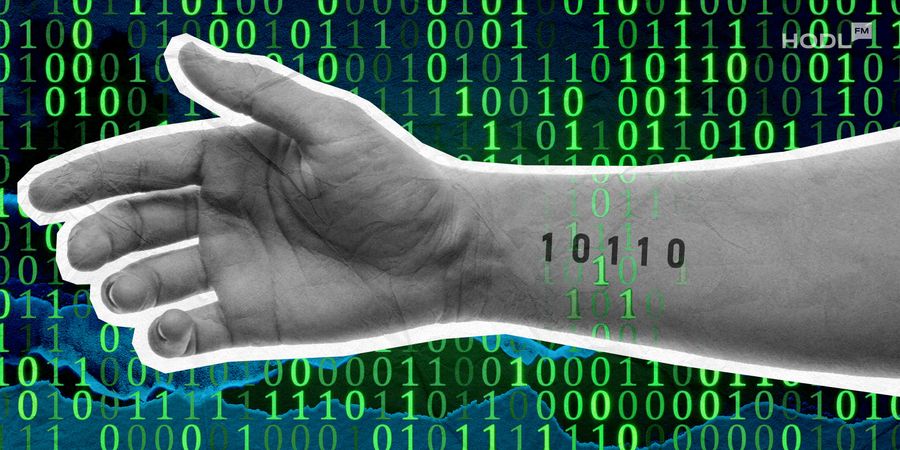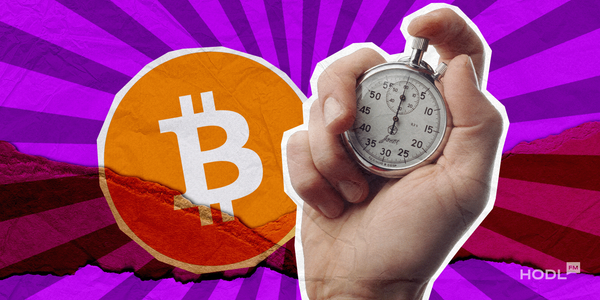Introduction to Decentralized Identity (DID): Definition and Significance
Welcome to the world of Decentralized Identity (DID), a concept as mystical as a cyberspace unicorn but as tangible as your overdue Netflix subscription.

Decentralized Identity is your digital passport in cyberspace, a unique identifier that you – and only you – control, without a central authority’s watchful eye. Imagine sailing through the digital universe with your identity, unhindered by centralized checkpoints.
Why is It Important?
With DID, you’re no longer playing a never-ending game of hide-and-seek with Big Brother. It’s about emancipating your digital self, taking back control over who you are, what you share, and with whom you share it online.
Read more: Crypto and Blockchain Education Takes Center Stage at Top Universities
Now, we’re not merely talking about eluding annoying ads or skipping tedious sign-up forms. The significance of DID runs deeper than the Mariana Trench. In the data-driven economy, where your digital identity often feels like an open book, DIDs can redraw the boundaries. It’s about empowering users, ensuring privacy, and offering an extra layer of security that’s much needed in today’s cyberspace.
Explaining the Self-Sovereign Identity (SSI) Concept and Its Advantages
No, this is not the latest Marvel spin-off; SSI is a game-changer that’s as groundbreaking as the invention of the internet itself.

With SSI, we’re talking about an identity system that’s not only universally accessible but also resistant to censorship, and controlled exclusively by you.
In the world of SSI, you’re not just another number in a database managed by faceless corporations. Instead, you’re the sovereign of your identity, calling the shots on your personal data.
Read more: The Use of Blockchain Technology in Space
Imagine having an identity that you can use anywhere in the world, across platforms, yet resilient to manipulation and misuse. It’s like having a cloak of invisibility that shields you from the omnipresent eyes of digital platforms while still enjoying the perks of online services. No longer are we bound to the whims of third-party overseers who treat our personal data like their own personal treasure trove. It’s the dawn of a new era, one where you’re no longer a digital serf but a digital sovereign.
The Role of Blockchain in Enabling Decentralized Identity Solutions
Now that we’re getting comfortable in our new super suits, let’s give credit where it’s due. Blockchain, often known for its association with cryptocurrencies, deserves a standing ovation for its role in enabling Digital Identity Solutions. With its immutable records and distributed consensus, the blockchain is like that trusty sidekick who always has your back, ensuring the integrity and security of your digital ID.
Here’s the deal. Blockchain technology provides an immutable and transparent record of transactions. It’s like your digital tattoo artist, permanently inking your ID onto the canvas of the internet. With every identity transaction, blockchain adds another layer to your unique digital persona, ensuring that it is securely stored, easily verifiable, and most importantly, under your control.
Read more: GameShift: Leveling Up Blockchain Gaming with Solana’s Wild Tool!
But that’s not all. The distributed nature of the blockchain means there’s no single point of failure, no one weak link that can compromise your identity. Instead, the control is decentralized across multiple nodes, each verifying the authenticity of the transactions. This makes it incredibly tough, if not downright impossible, for malicious players to manipulate your identity. It’s like having a digital fortress safeguarding your identity, standing firm against any onslaught.
Evolution of DID Standards: From SSI to W3C Credentials
Alright, now that we’ve tackled the basics, let’s embark on a whirlwind tour of DID’s evolutionary journey. We’ve come a long way from the initial days of SSI, progressing to the recently accepted W3C Credentials. It’s like watching the evolution of rock music, where W3C Credentials are Nirvana – disruptive, powerful, and culture-defining.

In the early days, SSI set the stage for a radical transformation, emphasizing individual control over digital identities. However, as the concept matured, the need for standardization became glaringly evident. Enter W3C Credentials, a universally accepted framework that brought along standardization and interoperability. With W3C Credentials, the once dissonant chords of SSI started playing in harmony, paving the way for a more organized and efficient identity system.
Understanding the Difference Between SSI and W3C Credentials
At this point, you might be wondering about the relationship between SSI and W3C Credentials. Well, to put it simply, they’re like siblings – related, yet distinct. Both aim to empower users with control over their digital identities. However, W3C Credentials bring to the table an enhanced level of interoperability and standardization that makes SSI look like the wild child of the family.
SSI and W3C Credentials share the same goal: giving control of identity back to the individual. However, while SSI emphasizes control and self-management, W3C Credentials add a layer of DID Standards, making DIDs interoperable across platforms and devices. It’s like comparing the raw talent of a garage band (SSI) with the refined performance of a symphony orchestra (W3C Credentials). Both create music, but one does so with a higher level of organization and finesse.
Use Cases of Decentralized Identity in Various Industries
If you’re wondering where all this DID hullabaloo fits into the real world, brace yourselves! We’re about to unveil some of the most exciting applications of DID across industries. From finance and healthcare to social networking and e-commerce, the potential use cases of DID are spreading faster than cat memes on the internet.
In the financial sector, for example, DIDs can revolutionize KYC processes, making it faster and more secure. In healthcare, they can ensure the confidentiality and integrity of medical records, granting access only to authorized individuals. Imagine a social networking platform where your identity isn’t in the hands of the platform provider but securely stored on the blockchain, under your control.
Challenges and Concerns with Decentralized Identity Adoption
As with any groundbreaking innovation, the path of DID isn’t all smooth sailing. There are challenges to overcome and concerns to address. We’re talking about everything from interoperability issues and the digital divide to the ever-looming threat of quantum computing. But hey, wasn’t it the same when the internet first came into existence?
- Interoperability is a key issue. As more entities adopt DID systems, the need for these systems to ‘talk’ to each other becomes crucial. Then there’s the digital divide. While those of us in the tech-savvy world might jump at the idea of DIDs, we need to consider those who may not have access to the necessary technology.
- And let’s not forget the quantum computing threat. While we’re far from having a quantum computer that can crack open the blockchain, it’s a possibility we must consider as we entrust our identities to the digital realm. Nonetheless, these challenges don’t dampen the potential of DIDs. After all, it’s these hurdles that keep the ride interesting and the eventual victory sweeter.
Gazing into the Crystal Ball: The Future of Secure and Privacy-Enhanced Digital Identity

As we stand on the brink of a digital identity revolution, it’s hard not to feel a sense of anticipation. While we’re not quite at the utopian ideal of a secure, privacy-enhanced digital world yet, we’re inching closer every day. With DID, we have a shot at reshaping the digital landscape, ensuring that individual users are no longer mere participants but empowered actors. But our journey does not end here; the future prospects for decentralized identity are vast and still largely unexplored.
Disclaimer: All materials on this site are for informational purposes only. None of the material should be interpreted as investment advice. Please note that despite the nature of much of the material created and hosted on this website, HODL FM is not a financial reference resource and the opinions of authors and other contributors are their own and should not be taken as financial advice. If you require advice of this sort, HODL FM strongly recommends contacting a qualified industry professional.




